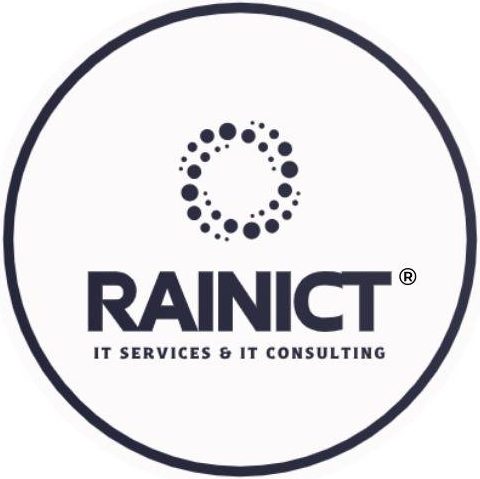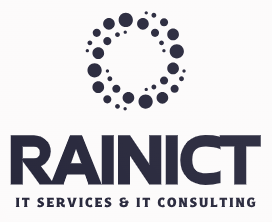Computer networks are critical parts of almost every organization. Computer network and system administration (CNSA) refers to the day-to-day operation of these networks. CNSA professionals organize, install, and support an organization’s computer systems, including local area networks (LANs), wide area networks (WANs), network segments, intranets, and other data communication systems.
Systems administrators, or SysAdmins, are a central part of information technology (IT) teams that support software functions, data transfers, and network connectivity for computer systems. Their role is to oversee the network as a whole, making routine improvements and updates to ensure the system can handle all networking tasks and meet security requirements. Their duties include tracking network traffic and activity, installing and configuring software updates and performing database backups to restore and protect user information.
There are several types of system administrators that oversee a certain aspect of system operations: network administrators, security administrators, database administrators, and server administrators. Some system administrators are responsible for multiple roles while others exclusively focus on their subject area. For example, a security administrator is in charge of cybersecurity, password protection, and user access. A server administrator may have some security responsibilities alongside running hardware and operating systems.
What Careers Are There in Computer Network and System Administration?
A career as a system or network administrator may take many paths. They might work in a corporate setting, a government agency, or an educational institution. Some could end up being self-employed consultants, while others may advance their careers by moving into other IT sectors such as systems engineering or software development. Those with the required skills and accreditation have plenty of options available to them.
Job titles for CNSA professionals include:
- Application Developer
- Chief Security Officer (CSO)
- Database Administrator
- E-commerce Developer
- Information Analyst
- Information Systems (IS) Manager
- Information Technology (IT) Specialist
- Local Area Network (LAN) Specialist
- Local Area Network (LAN) Administrator
- Network Administrator
- Network Coordinator
- Network Engineer
- Network Manager
- Security Specialist
- Senior Interface Developer
- Systems Administrator
- Systems Engineer
- Voiceover IP (VoIP) Engineer
What Tasks do Computer Network and System Administrators do?
A CNSA professional is responsible for the day-to-day operation of an organization’s network. They install and maintain network hardware and software and troubleshoot any issues that may arise. They also research computing tools, develop policies and procedures for using and maintaining the network, and may be required to provide support to users (both internally within their organization and externally with clients).
System administrators may meet with clients to discuss their computing needs and identify how they can access system tools while keeping their information secure. They may answer phone calls, mentor IT support staff, plan updates, and delegate incoming tasks to members of their team. System administrators may also perform research to find ways to improve system efficiency by identifying signal interruptions and environmental factors that impact network performance.
Specific daily job duties may depend on the size and scope of an organization’s computer systems. At smaller businesses, the system administrator may handle all IT duties, including maintaining and updating all computers, and ensuring data security and backup. Larger corporations may divide system administrators’ responsibilities into more specific sub-roles, therefore resulting in specialized positions like database administrators or security administrators.
Some tasks that network and computer systems administrators undertake include:
- Installing hardware and software for the network
- Performing necessary upgrades and repairs
- Evaluating and optimizing network or system performance
- Identifying user needs and selecting appropriate IT systems
- Training users in the proper use of hardware and software
- Analyzing complex computing problems and implementing solutions
- Maintaining network and computer system security
What Skills do Computer Network and System Administrators Need?
While most employers require computer network and systems administrators to have a bachelor’s degree in a field related to computer or information science, others may require only a postsecondary certificate or an associate’s degree. Some employers may even require that administrators have a master’s degree.
Generally speaking, CNSA professionals need to have a working knowledge of:
- Network topologies
- Network protocols
- Routing and switching concepts
- LAN/WAN technologies
- Configuring and managing firewalls
- Managing VPNs
- Configuring and managing routers
- Monitoring network performance
- Analyzing network traffic
- Planning and implementing disaster recovery procedures
Other necessary skills for a systems administrator may include:
- Critical thinking skills
- Analytical skills
- Time management and multitasking skills
- Verbal and written communication skills
- Interpersonal skills
- Problem-solving skills
Because network technology is constantly changing, administrators need to keep up with the latest developments. Many continue to take courses throughout their careers and attend IT conferences to keep up with the latest technology.
In addition, many companies require their network and computer systems administrators to be certified in the products they use. Certification programs are usually offered directly from vendors or from vendor-neutral certification providers and function to validate the knowledge and use of best practices required of network and computer systems administrators. Microsoft and Cisco offer some of the most common certifications.
The Future of Computer Network and System Administration
CNSA professionals are a central part of IT teams that support software functions, data transfers and network connectivity for computer systems. Employed by virtually all organizations, CNSA is an enduring career opportunity.
Computer Network and System Administration at RAINICT
RAINICT is fully dedicated to computing, and one of only a few nationwide. RAINICT computer network and system administration students learn to build and troubleshoot computer networks and manage enterprise & corporate systems effectively and securely.







